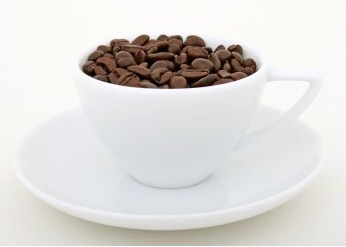It's caffeine, not the misunderstanding of coffee addiction.

Food misunderstanding
Finally survived the long summer, but the spirit will still feel tired, the original "autumn fatigue" followed. At this time, many friends like to have a cup of cold cola or tea, which will soon feel much more comfortable.
Why does drinking these drinks make people feel refreshed? It turns out that these drinks often contain a small amount of caffeine, which helps people reduce fatigue caused by increased energy consumption in hot weather. And properly drinking some caffeinated drinks can refresh your mind and lift your spirits. The refreshing effect is very different from some irritating substances, such as alcohol, because caffeine acts on the body for a short time. That's why we always see a lot of people drinking coffee, tea or coke in the workplace.
When it comes to caffeine, people's understanding of it is even more inadequate, there are two main misunderstandings, one is that only know that caffeine has a refreshing effect, drinking more will affect people's sleep. In fact, caffeine is a natural substance found in the seeds, leaves or fruits of many plants, known as coffee beans, cocoa beans and tea.
The second misunderstanding is that many people often think that caffeine causes osteoporosis. In fact, insufficient calcium intake is the main cause of osteoporosis. Other factors include hormones, exercise, nutrients, mineral and calcium intake and people's eating habits, which are not absolutely related to caffeine intake. There is no direct evidence that caffeine causes osteoporosis, and some studies have found that although caffeine increases calcium excretion, insufficient calcium intake is the main reason.
So how on earth can we meet people's spiritual needs without affecting their health? This is the knowledge of caffeine intake. In our daily drinks, caffeinated drinks are mainly coffee, tea, cola and so on. It is generally believed that the safe daily intake of caffeine for adults is 300 milligrams in 240 milliliters per cup, 65 to 120 milligrams per cup of coffee, 20 to 90 milligrams per cup of tea and 23 to 31 milligrams per cup of Coke. So for the average person in good health, drinking 2 to 3 cups of coffee or 5 to 6 cans of caffeinated cola a day will not cause health problems caused by caffeine.
Of course, any good thing that is excessive will lose its original effect. Therefore, experts suggest that it is best to decide whether to drink more or less based on the effects of caffeine on your sleep, blood pressure and digestive system, while lactating women and pregnant women should consume less caffeine.
Important Notice :
前街咖啡 FrontStreet Coffee has moved to new addredd:
FrontStreet Coffee Address: 315,Donghua East Road,GuangZhou
Tel:020 38364473
- Prev

Coffee scientists have found that coffee and tea can protect the liver.
For regular drinkers, drinking more coffee and tea can reduce alcohol damage to the liver, according to a new study released by US scientists. The study was conducted by the national glycosuria of the United States.
- Next

The health effect of black coffee is refreshing.
1, refreshing caffeine to stimulate the central nervous system, can make the mind more clear, thinking ability is abundant, focus, improve work efficiency; 2, strong muscles, waist and knee caffeine can make muscle free contraction, can improve motor function. 3, appetizer and digestion caffeine stimulates stomach and intestines to secrete gastric acid, which can promote intestinal peristalsis, help digestion, prevent gastroptosis, and quickly defecate.
Related
- Beginners will see the "Coffee pull flower" guide!
- What is the difference between ice blog purified milk and ordinary milk coffee?
- Why is the Philippines the largest producer of crops in Liberia?
- For coffee extraction, should the fine powder be retained?
- How does extracted espresso fill pressed powder? How much strength does it take to press the powder?
- How to make jasmine cold extract coffee? Is the jasmine + latte good?
- Will this little toy really make the coffee taste better? How does Lily Drip affect coffee extraction?
- Will the action of slapping the filter cup also affect coffee extraction?
- What's the difference between powder-to-water ratio and powder-to-liquid ratio?
- What is the Ethiopian local species? What does it have to do with Heirloom native species?

